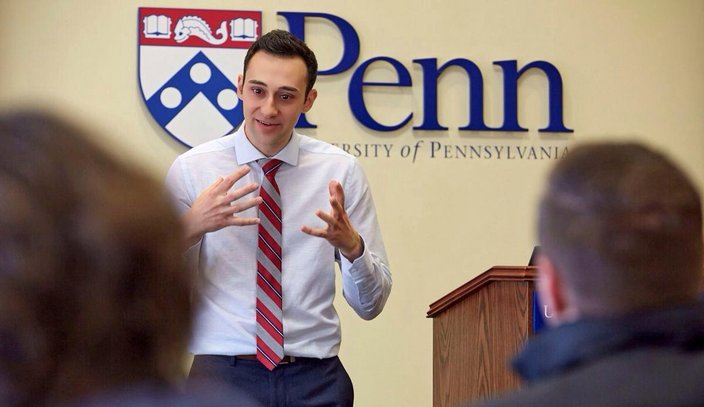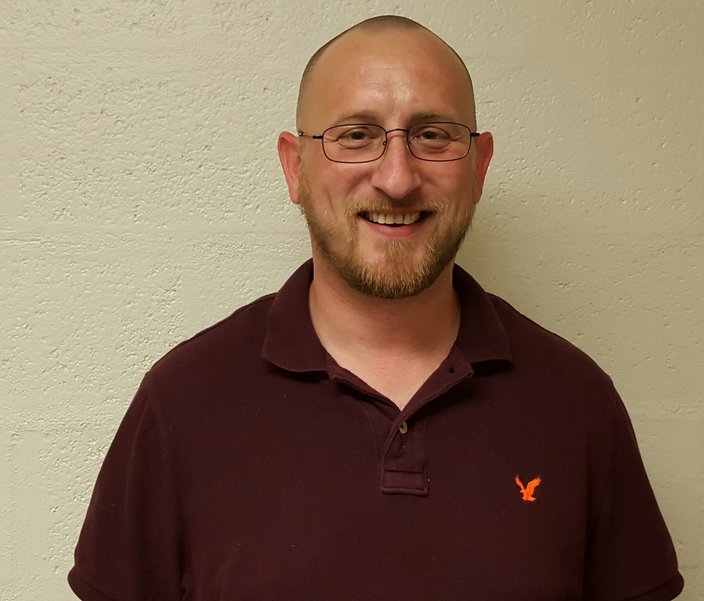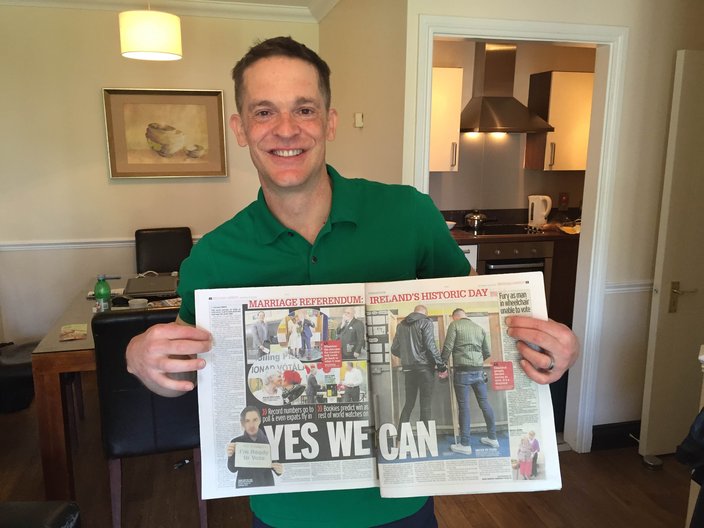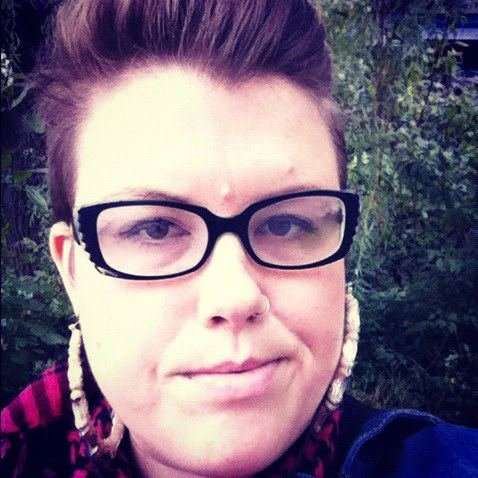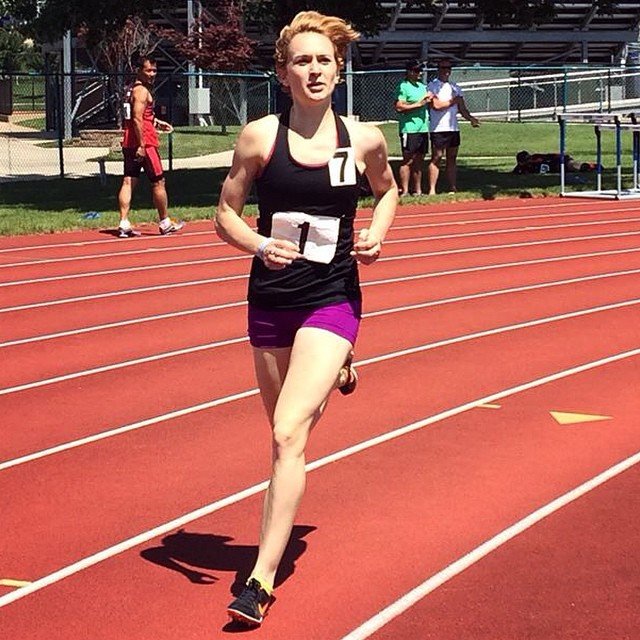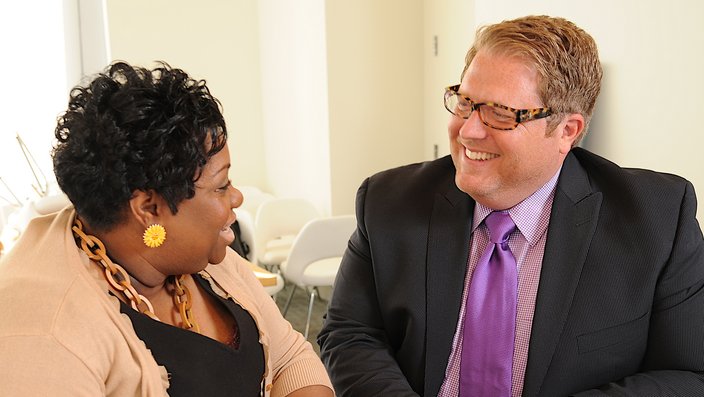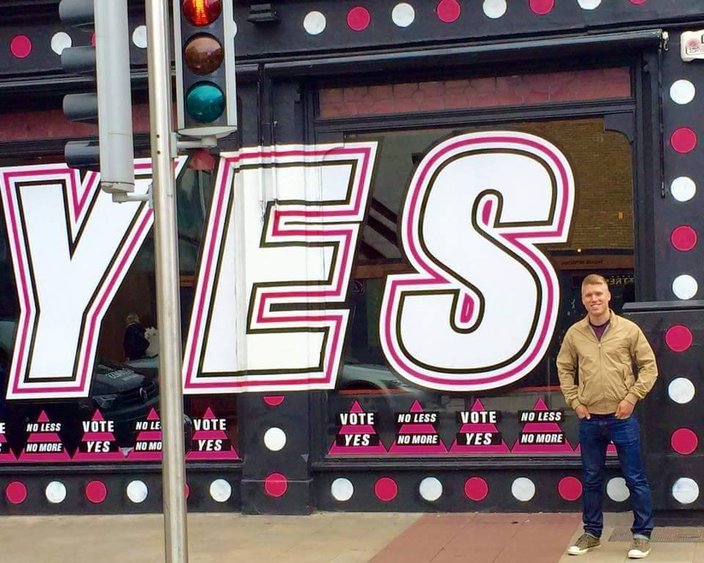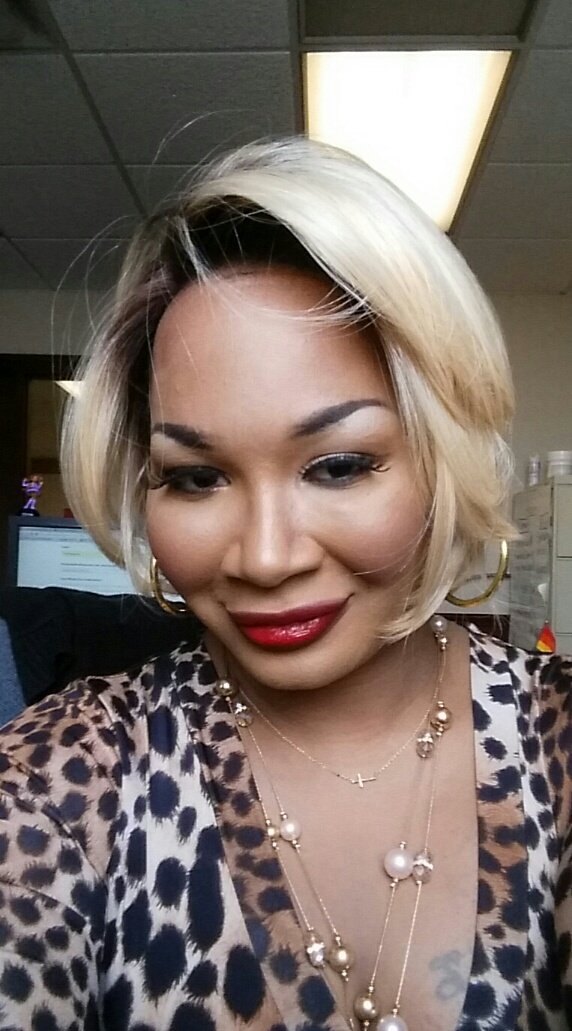
June 11, 2015
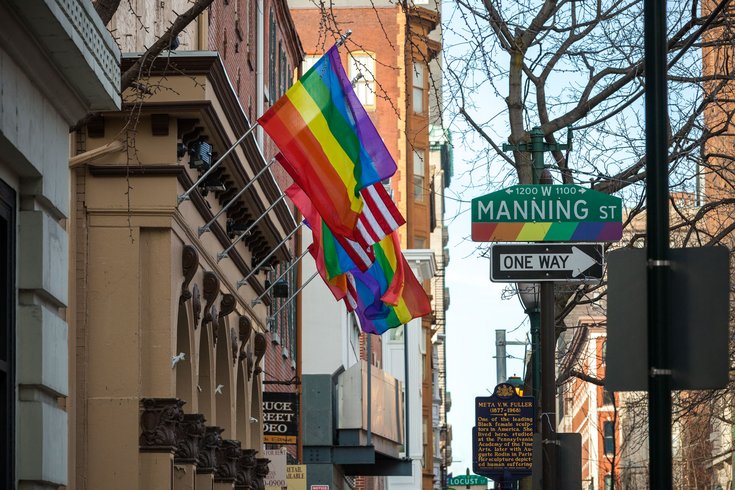 Thom Carroll/for PhillyVoice
Thom Carroll/for PhillyVoice
The heart of the Gayborhood, at 12th and Manning streets.
This month, the Supreme Court will decide one of the most talked-about and fought-over political issues since Roe v. Wade. Nationwide marriage equality is, in truth, closer than it's ever been for a community that's been shouting at lawmakers, making powerful love stories go viral, hoisting rainbow flags and dreaming aloud for decades.
Yet, with every resolution comes a series of related questions, the most burning among them in the LGBT community right now being this: What's next?
Look, an entire generation's Agenda Item No. 1 has been marriage equality -- an issue so ingrained in LGBT activist culture that advocating for it is almost a reflex. But now, with the headlines of same-sex marriage about to come to a serious slowdown (provided the court rules how experts think it will), it might be time to take a peek at the issues that folks on the ground have been dealing with all the while and that will persist even after the wedding bands are slipped on fingers.
Here, you'll find 10 local activists -- young and old, gay and trans, white and Latino -- who have been pushing just some of the LGBT issues you've probably never heard of.
... Until now.
Louie Ortiz-Fonseca is an advocate for Latino inclusion in the LGBT community, as well as the creator of a documentary that follows gay Latino men in Philadelphia. Photo courtesy of Louie Ortiz-Fonseca
Louie Ortiz-Fonseca, quite simply, wants people to know that Latinos can't be clumped into a "colored" category -- like a snowflake, they're as one-of-a-kind a community as any other. And they want to be treated that way.
The problem, he said, is that even well-intended services tend not to reach communities like his because they don't know how to do effective outreach to a community that doesn't move as "effortlessly" between communities in Philly's LGBT world.
“HIV information [for example] has not reached certain communities, and that includes Latino gay men, who are just as at-risk as black gay men," Ortiz-Fonseca said. "But when people think 'HIV,' they don’t think ‘Latino.’ The thinking is often that if we have a black gay male ads program, the Latinos will come, and that’s not the case."
“Conversations about race scare people, and it scares queer people because we’re socialized to think all gay people will get along -- that that identity would be enough," Ortiz-Fonseca said. "But that hasn’t been the complete case."
Outside of his public health outreach at the Mazzoni Center, he's currently spreading the word about Latino culture and its custom needs through a self-funded documentary called "The Gran Varones." It's a film that, Ortiz-Fonseca said, takes the camera to gay Latino men who aren't just "Ricky Martin" types -- they're barbers, guys with "rollers in their hair" and people tasked with raising siblings, nieces and nephews. It's a more honest story about male leadership in the Latino family structure, based on the song "El Gran Varon," and what impact being gay has on a Latino family.
It's a way of showing, rather than telling, Latino culture's intricacies.
“Conversations about race scare people, and it scares queer people because we’re socialized to think all gay people will get along -- that that identity would be enough," he said. "But that hasn’t been the complete case, and I think we’ve been reluctant to have that conversation. ‘How is our community replicating what the larger culture tells us about race and presentation?’ Through marriage equality, I hope it will lead to more conversations about race, how that shows up in the Gayborhood, in the media and in who’s in leadership roles in the gay community."
Linda Hawkins is co-director of the Gender and Sexuality Development Clinic at the Children's Hospital of Philadelphia. Photo courtesy of the Children's Hospital of Philadelphia
Let's bust this myth right off the bat: It's not just people like 65-year-old Caitlyn Jenner who are battling with their gender identity. In fact, it's a battle that children as young as 4 years old can be faced with, said Linda Hawkins, co-director of the Gender and Sexuality Development Clinic at the Children's Hospital of Philadelphia.
"Parents will share with me that Little Billy is just not happy. He's getting upset when they say, ‘You’re brave and strong and should play with these toys,’ and he’s happy when they interact with him in a way they might interact with his sister," Hawkins told PhillyVoice. "It’s not uncommon for parents to reach out to me for little ones at age 5, 6 or 7, because when they hit that wall of difference, it sometimes hits very hard."
Hawkins: "It’s not uncommon for parents to reach out to me for little ones at age 5, 6 or 7, because when they hit that wall of difference, it sometimes hits very hard."
Hawkins has been supporting the LGBT community with CHOP for 15 years. In January 2014, the work was formalized as the Gender and Sexuality Development Clinic, which she co-heads. In the time since then, she said she's counseled about 150 families -- but is most concerned about the families who don't come to her for support.
"Those are the families where Billy is saying, ‘I don’t feel comfortable in my body,’ and for whatever reason, parents are either not listening or saying, ‘Billy, you’ll be just what we expect you to be,'" she said. "I want to promote the message that these children matter, and these families are important to CHOP. That’s what I hope will bring in those folks who would otherwise not want to acknowledge these children in their families.”
Baligh Yehia is the founder of the University of Pennsylvania's LGBT-focused program that serves LGBT patients and promotes their wellness. Photo courtesy of the University of Pennsylvania School of Medicine
Baligh Yehia, as not just an activist, but a medical professional, wants to shed light on the nuances of LGBT health -- to make it about more than the frail and lesioned, or the mentally unstable.
"LGBT health isn’t just about HIV or suicide," Yehia told PhillyVoice. "There are so many other issues reported to the community, and sometimes things like HIV -- I’m an HIV doctor, so it's obviously important -- but it becomes a stereotype that it’s the only health issue. We want to increase awareness of other things -- heart disease, smoking, etc. It's all about trying to, in my mind, destigmatize and transform LGBT health to not be one-sided."
Yehia founded the Penn Medicine Program for LGBT Health in 2012. It's an interdisciplinary program, meaning it combines nursing, dental, public health and other services, as well as targets med students for training on how to personalize care for a population that might seem like any other, but may need treated with a deft touch upon stepping foot in a doctor's office.
"LGBT health isn’t just about HIV or suicide," Yehia said. "There are so many other issues reported to the community..."
“I get that a lot: ‘What is the difference? Aren’t [LGBT people] like everyone else?’ And in many cases, they are," he said. "If you identify as LGBT, you walk into the clinic and get treated like everyone else would get treated; it’s the same quality. The difference is that there are places across the country where you walk into a clinic and you would get treated differently, or policies and practices don’t allow designations from your partner because you’re not married or related by blood."
The purpose of Penn's program, then, is three-fold: designate a safe space for LGBT people to know they'll be treated fairly, train upcoming medical professionals on how to be considerate of LGBT needs and begin collecting LGBT health data that's largely been ignored since modern medicine began.
Rusty Doll is an advocate for LGBT homeless youth in Philadelphia and founder of Change Philly Today. Photo courtesy of Rusty Doll
In February 2014, taken aback by an encounter with a young, homeless gay man, Rusty Doll gave just about the biggest donation to the cause there is to give: his house.
That passion for change took organizational shape in the form of Change Philly Today, which strives to provide a shelter for homeless LGBT youth -- ones kicked out of their homes after coming out to their family. In Philadelphia, he said, only eight shelter beds are designated for LGBT youth; he wants to add to that.
"[Homeless LGBT youth] need a level of security that is a home, a personal space, somewhere they can receive mail, an official address to go to school, apply for grants -- you can’t do that living on someone’s couch," Doll said. "We really just want to get them into a place where they’re stable for six months to a year, instead of three nights to a week.”
Because tracking data on homelessness is dependent on use of public services -- which not all homeless youth access -- the exact number of homeless LGBT youth in Philadelphia is unknown. Though, 1,665 homeless youth in Philadelphia under the age of 18 were documented in 2014.
Unfortunately, the North Philadelphia house Doll designated for his shelter -- which would have also offered nutrition services and a GED-obtainment program -- was robbed earlier this year, to the point of disrepair. He sold the house at a loss and is now focusing on advocacy work to build a large enough following to reboot the project.
But with marriage equality still a focus, he said it's hard to get people to listen to his cause.
Doll: "[Homeless LGBT youth] need a level of security that is a home, a personal space, somewhere they can receive mail, an official address to go to school, apply for grants -- you can’t do that living on someone’s couch."
"I don’t feel the LGBT community is ready to support it," Doll said. "It’s such a niche. You go from homelessness, to youth homelessness, to LGBT homelessness. It’s so specific that the general population doesn’t support the cause, and I feel that’s our weak point.”
For now, he's traveling to local hospitals to speak about the health and sex-ed needs of homeless LGBT youth and raising an ongoing round of funds through GoFundMe.
With any luck, he said, he'll be able to shift attention to his cause and open a shelter near the Gayborhood, which he cited as Ground Zero for displaced LGBT youth and sex workers.
Jay Lassiter, a longtime South Jersey LGBT activist, advocates in Ireland leading up to the vote that legalized same-sex marriage there in May. Photo courtesy of Jay Lassiter
Meet Jay Lassiter, and you'll instantly be struck by how no-nonsense he is in language. The filter's off, and his patience for intolerance is paper-thin.
Maybe it comes with being an activist for 20 years, or maybe it's just part of his Jersey DNA.
Lassiter, of South Jersey, has been actively picking battles with New Jersey and Pennsylvania lawmakers since 1992 -- when he first came out of the closet as not just gay, but HIV-positive. For Garden State Equality, he's fought for marriage equality, transgender equality laws ("Before it was cool," he said) and, most recently, started advocating for medical marijuana in Pennsylvania for the purpose of allowing long-term HIV victims to cope with the disease.
“The obvious reasons why a long-term HIV survivor would use cannabis is for the gastrointestinal implications with this disease," he told PhillyVoice. "A couple days a month when my stomach is rebelling and I still have to take my meds -- because that’s what long-term survivors have to do -- if it weren’t for cannabis, it would be hard to be disciplined in my care."
In addition to that, he's taking on an issue that's a little more intangible, but key all the same -- especially as the battle for marriage equality nationwide turns from a boil to a simmer. In short, he's asking LGBT activists to play nice with their adversaries. He points to the divide still present with abortion as something he doesn't want to see in 40 years.
"The next thing for us to do [after marriage equality] is do what we’ve neglected in our steps of progress, which is to realize that not everyone is going to feel good about these changes," he said. "These are still countrymen and maybe we should spend a hot second showing them the compassion and empathy they never showed us. ... And if we’re able, as a gay community, to not just keep score but stop playing those games and react to progress in a mature way, then we will have succeeded."
Laura Sorensen is director of Southwest Philadelphia's Morris Home, a residential alcohol and drug treatment facility for trans people. Photo courtesy of Laura Sorensen
Formerly a coordinator for the Mazzoni Center's Trans* Wellness Project, Laura Sorensen heads Morris Home, a Southwest Philadelphia drug and alcohol treatment program that welcomes trans people who might be apprehensive about entering other programs where they may face harassment.
"Our members come into the program with extensive trauma histories, and many of our members have had negative experiences while previously trying to access programs and services," Sorensen told PhillyVoice. "Our work is to help folks unpack the terrible experiences they've had while homeless or incarcerated and explore how those experiences have impacted their substance abuse history."
The facility is trans-specific and tends to serve people of color, she said. The program takes a "holistic view" by teaching life skills -- cooking, resume-building, etc. -- and having peer-to-peer counselors available to explore career options, how to legally change names and how to access health care.
The organization, she said, is currently working to grow its team of peer-to-peer volunteers.
A former runner for the University of Pennsylvania, Anna Aagenes does local organizing for You Can Play, a national organization that advocates for LGBT athletes. Photo courtesy of Anna Aagenes
After a two-year stint as deputy chief of staff for openly gay State Rep. Brian Sims, Anna Aagenes left in January to pursue advocacy for LGBT inclusion in the sports world and now serves as a program and community coordinator for the You Can Play Project. As a former track and field athlete for the University of Pennsylvania, creating a safe environment for LGBT athletes has always been an issue that's near and dear to her.
Because being an athlete is as much a lifestyle as it is an activity.
"It was harder for me to come out to my team than it was my family," Aagenes told PhillyVoice.
Aagenes said that young, aspiring LGBT athletes are often made to believe they're not welcome on a sports team or are bullied out of one in the locker room. But that doesn't need to be their reality, she said -- they, too, can play.
"We have so many more role models for people today, but there are still kids out there who don’t know that [being out on a team] can be possible," she said. "Being able to be on a team is good for young people, and taking the LGBT bias and homophobia to sports really prevents a lot of them from coming out. They'll often quit, or are subject to bullying. We can’t talk about LGBT inclusion without thinking about the impact of not only young people and their environment, but sports culture. Because it’s everywhere."
Aagenes and her team host training sessions with athletes, coaches and administrators in Philly and elsewhere to help broaden that sports culture, teaching LGBT inclusiveness and sometimes bringing young guest speakers to emphasize impact.
Braeden, a 12-year-old lacrosse player from Chester County, sends a thank you to "Courage Game" participators.
Locally, she and You Can Play teamed up with OutSports.com to host a "Courage Game" at Penn Park in May, meant to support a 12-year-old lacrosse player who struggled with feelings of isolation after coming out. She's also planning a You Can Play Night at Wells Fargo, to be held once a month during sports events (think: LGBT night at the Phillies games).
Klayton Fennell, pictured right, with Andrea Agnew, Comcast's executive director of Workforce Diversity & Inclusion. Photo courtesy of Comcast Corp.
Fourteen years ago, in talks with his future boss at Comcast, Klayton Fennell remembers being scared witless upon asking for domestic partnership rights.
"It was, ‘Oh my god, is my offer about to get rescinded?’ And it wasn’t that there was discrimination, it was that Comcast hadn’t had to deal with it before," Fennell, now Comcast's senior vice president of government affairs, told PhillyVoice. "Fast-forward 14 years, and they’re one of the companies who signed on to the amicus brief who signed on to the business argument for marriage equality. I’m enormously proud of [that]."
Largely through his own volunteer efforts, Fennell's been influential in getting Comcast to bump up LGBT employee salaries for couples in long-term relationships to make up for a tax gap, to offer trans-inclusive health benefits and, of course, to offer LGBT-targeted content through its cable services. (Particularly that "LGBT Pride Month" On Demand section running all this month.)
At the moment, Fennell is pushing for a re-evaluation of Comcast Foundation donors and modified benefits for couples that make adoption more affordable. But the bigger issue is getting other corporations to be just as inclusive as Comcast, which regularly receives a perfect score from the HRC Corporate Equality Index; it's a way of demonstrating inclusion, rather than just talking the talk.
"After we get our legal rights into law, we still have the fight of, ‘How do we get equal treatment socially, culturally?’" Fennell said. "That’s what practices like Comcast’s help do. It’s about social inclusion, cultural respect.”
Trevor Powell, of Liberty PA and Garden State Equality, traveled to Dublin to support the Irish vote for marriage equality. Photo courtesy of Trevor Powell
Twenty-six-year-old Trevor Powell is of a rare breed of young LGBT activists by being an activist at all. Many young LGBT people today, he said, can sometimes feel a tad too at ease.
"It can be difficult to pull in younger activists because there's such a great feeling of complacency," Powell told PhillyVoice. "The feeling that achieving marriage equality and anti-discrimination laws is inevitable."
But someone's got to be the one to put up a fight, which is why he's been volunteering for LGBT-friendly campaigns and pushing issues like marriage equality since he came out of the closet in 2008. Last month, he traveled to Ireland to advocate leading up to a national marriage equality popular vote, which ultimately passed.
Today, he's working with civil liberties advocacy group Liberty PA to advocate statewide legislation that would address LGBT employment discrimination, hate crimes, conversion therapy (yes, that's still legal) and "religious freedom" laws found in states like Indiana.
Being a young activist, continuing long-running fights for nondiscrimination laws can be a humbling experience.
"Those that fought for the LGBT community in the '70s and '80s fought for societal visibility and an end to government hostility; what we're fighting for now is government recognition and protections," he said. "For us, it's so easy. We can be visible in the fight now -- publish editorials without using pseudonyms and congregate openly in bars and other public spaces. Older generations couldn't do those things, but it was their work that allowed us to be as visible as we are today."
Samantha Jo Dato coordinates the Mazzoni Center's Trans-Health Conference, first held 14 years ago between a group of 70 activists. Photo courtesy of Samantha Jo Dato
Samantha Jo Dato has, since 2013, been tasked by the Mazzoni Center with coordinating the Trans-Health Conference, a congregation of minds from around the world -- literally, everywhere from South Africa to India -- to educate and empower trans people, health professionals and allies. This year, the conference, held at the Pennsylvania Convention Center, clocked in at 5,000 attendees -- a leap from the 3,500 who attended last year.
The mission is to provide "trans-competent" care, she said.
“What I mean by ‘trans competence’ is proper pronoun usage, mutual understanding of the anxiety that comes with people who are mis-gendered," Jo Dato told PhillyVoice. "It's like turning the lightbulb on. It’s like when someone says they’re diabetic: 'Orange juice, now check their blood.’ There’s a protocol that comes with that. We need a proper protocol -- their lightbulb to turn on. To give answers that give the best services.”
Jo Dato: "Most people have this taboo around trans people being mentally challenged or wrong-bodied, and that's not the case."
But beyond working on trans-competent care, employment nondiscrimination and fighting for fair health insurance policies, she's also just hoping Philadelphia will stop killing its own. The most recent killing of a trans person happened in May in North Philadelphia; Londyn Chanel, 21, was stabbed once in the neck and twice in the back in her home.
"That's just not acceptable," she said.
The larger issue to tackle, then, is how the general public perceives trans people -- to make sure they're seen as people at all.
“We’re humans with lives and stories. No one is to be erased, or be a ‘freak.’ Most people have this taboo around trans people being mentally challenged or wrong-bodied, and that's not the case," Jo Dato said. "Most people are living their truth and are excited about liberation. Every trans person is not the same, so don’t clump them into one big old category.”
So, with a laundry list of issues still to tackle, she -- like everyone else on this list -- keeps going with her efforts.
"There's always work to be done," she said.
